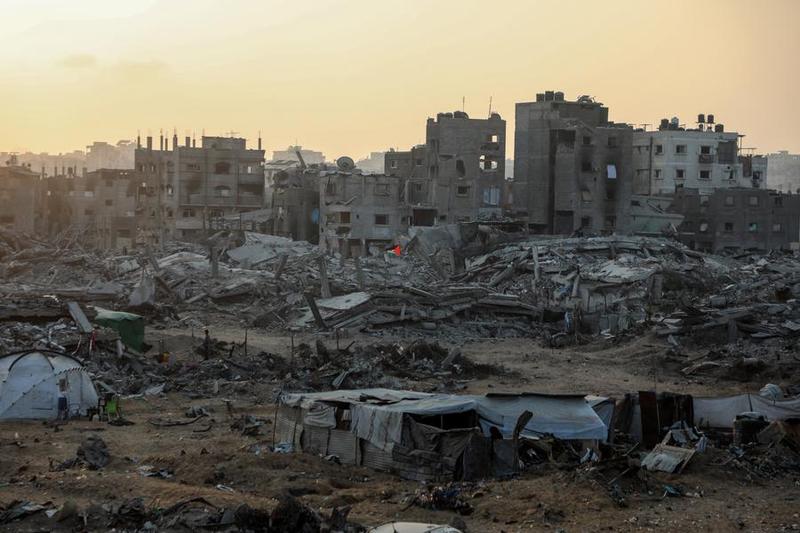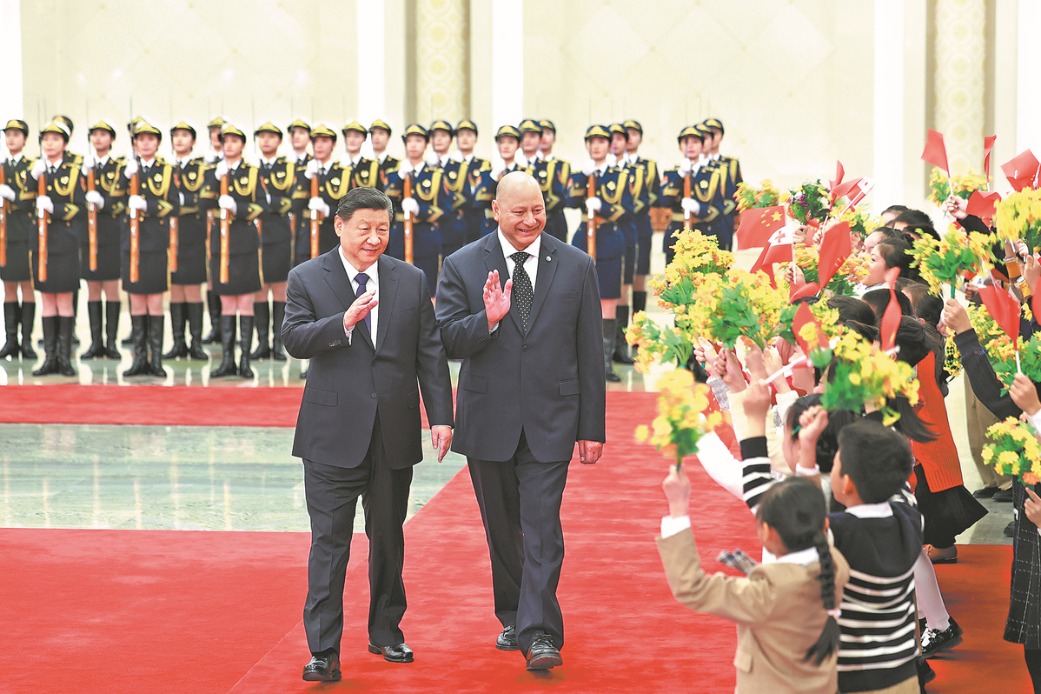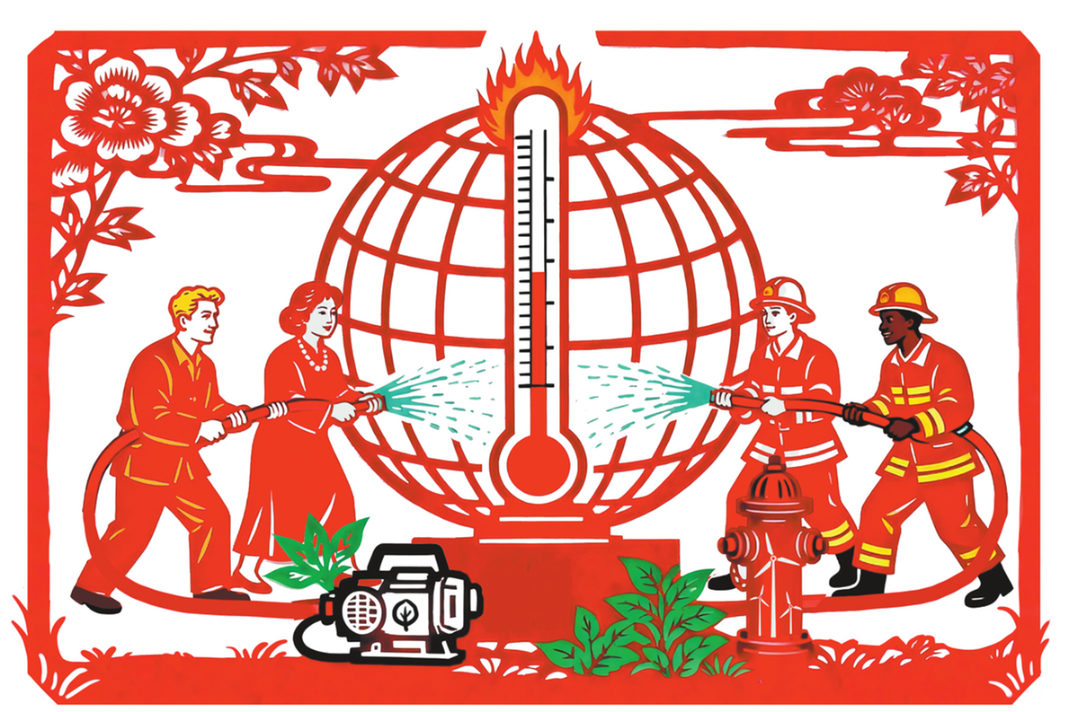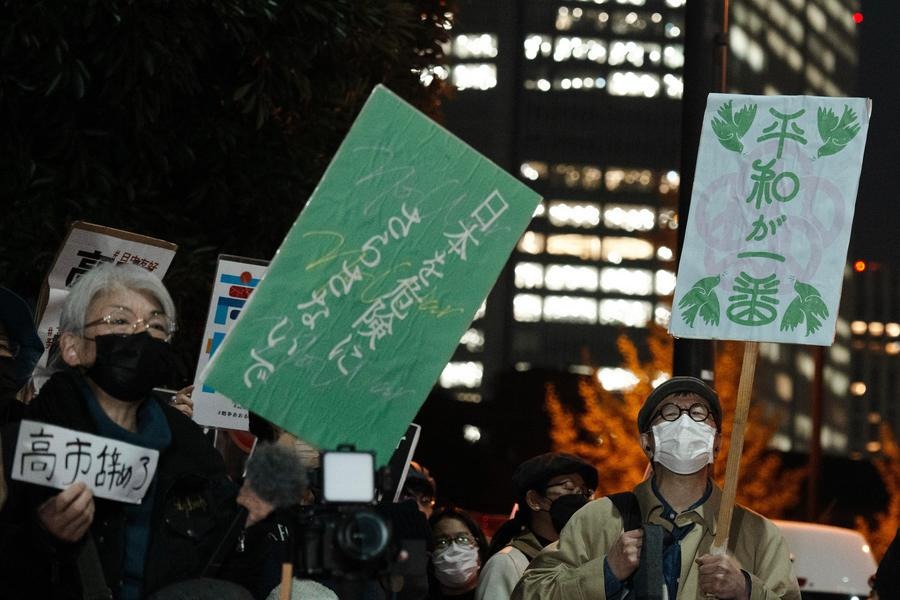International community should work together to confront root causes of Palestinian question: China Daily editorial


China's long-standing position on the Palestinian question is rooted in a simple but profound conviction: there can be no lasting peace in the Middle East without a just solution to the question. As President Xi Jinping emphasized in his congratulatory message to the United Nations meeting commemorating the International Day of Solidarity with the Palestinian People on Wednesday, the question of Palestine lies at the heart of the Middle East conflict, affecting international fairness, justice and regional stability.
Xi said that under the current circumstances, the international community should build greater consensus and take more proactive steps to ensure a comprehensive and lasting ceasefire in Gaza and prevent a resurgence of conflict.
Today's fragile calm in Gaza, following the first-phase ceasefire agreement, is far from the comprehensive and lasting peace the region urgently needs. As China's ambassador to the UN, Fu Cong, underscored at the UN Security Council on Monday, the humanitarian catastrophe in Gaza and the ongoing violence and uncertainties surrounding post-conflict arrangements all point to a simple truth that partial measures cannot substitute for a political solution grounded in equality, justice and the Palestinian people's legitimate national rights.
The current ceasefire, though welcome, remains fragile. Repeated violations and continuing civilian casualties highlight its precariousness. China stresses that a ceasefire must mean the true cessation of all attacks and must be upheld in good faith by all parties. Any incident causing civilian deaths is unacceptable and cannot become a new normal for Gaza. Ending hostilities comprehensively is not only a moral imperative but also the necessary foundation for reconstruction and political dialogue. Xi's call for "more proactive steps" to consolidate the ceasefire reflects this urgency.
At the same time, the humanitarian disaster in Gaza demands immediate action. Shortages of food, medicine, fuel and basic necessities persist, while restrictions on humanitarian access severely undermine relief efforts. As affirmed by the International Court of Justice, international law is unambiguous on the fact that Israel as the occupying power has a legal obligation to ensure that lifesaving assistance reaches civilians without obstruction.
China urges all relevant parties, Israel in particular, to open all crossing points, lift restrictions on humanitarian access, and ensure that the UN Relief and Works Agency for Palestine Refugees in the Near East and other agencies can carry out their operations effectively.
Improving humanitarian conditions is a prerequisite for restoring human dignity and stabilizing the situation on the ground. Xi's emphasis on concerted actions to alleviate the suffering of the Palestinian people underscores the international community's collective responsibility to act swiftly.
Ultimately, the two-state solution remains the only viable path to achieving lasting peace. Establishing an independent Palestinian state with full sovereignty based on the 1967 borders, with East Jerusalem as its capital, is an international consensus and a moral imperative. This solution is indispensable to eliminating the roots of conflict and enabling the Palestinians to realize their legitimate national rights. The international community must oppose unilateral actions that erode the foundation of the two-state solution and redouble efforts to advance a political process grounded in international law and relevant UN resolutions.
China firmly supports the just cause of the Palestinian people to restore their legitimate national rights. It will continue to work with the international community to make unremitting efforts for a comprehensive, just and lasting settlement of the Palestinian question at an early date.
The debate over the postwar arrangements for Gaza demonstrates the need for a principled and inclusive approach. Gaza belongs to the Palestinian people, and any arrangement concerning its future must respect their will, uphold their sovereignty and avoid structures that undermine the territorial integrity of the Palestinian state. China has expressed its deep concern over proposals that lack clarity, fail to reflect Palestinian sovereignty, and marginalize the role of the Palestinian Authority. As Fu said in his explanation for China's abstention on the recent UN Security Council draft resolution on the postwar arrangement of Gaza, governance of the Palestinian enclave must be based on the fundamental principle of "Palestinians governing Palestine".
China also stresses that the UN, with its extensive experience in post-conflict governance and reconstruction, must play a central role in any future arrangements. Proposals that bypass meaningful UN oversight or are rushed through without adequate consultation risk deepening divisions and jeopardizing long-term stability.
These concerns highlight a broader truth that the Palestinian question cannot be resolved through temporary arrangements or externally imposed structures. The Palestinian question is a test of the effectiveness of global governance. Only by addressing the root causes of the conflict and correcting historical injustices can the region move toward real peace. The international community must act responsibly, support genuine Palestinian ownership, and ensure that future efforts contribute to — not detract from — the prospects for a political settlement.


































